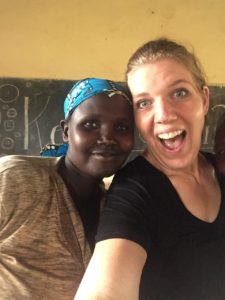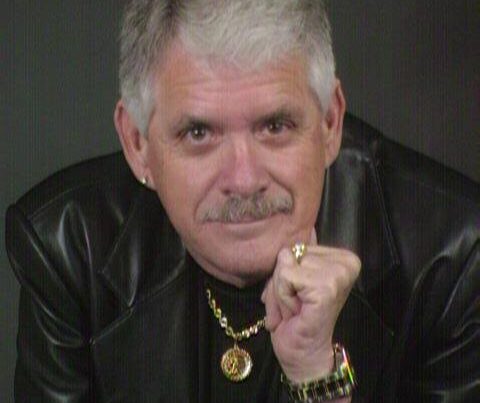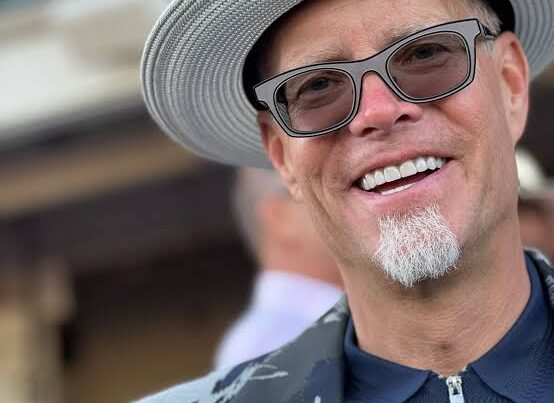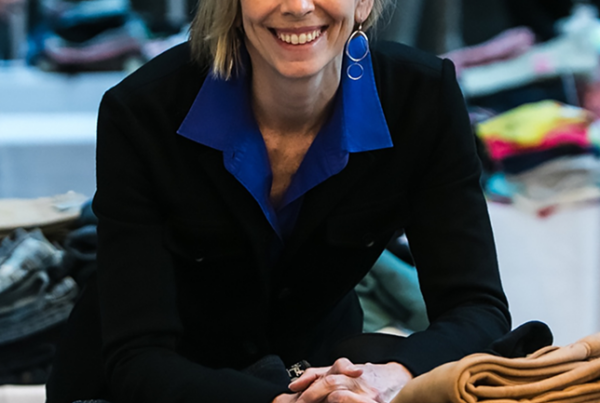Podcast: Play in new window | Download
Subscribe: RSS
What do you do when you have the passion for people and transforming lives but lack relevant experience?

Alayna Aiken (shown with Sara from Kenya)
Alayna Aiken is a wife to Chris and a mom to teenagers Kimberly and Josiah – who all have traveled many times with her to Kenya. She also teaches Fashion Studies as a Family and Consumer Sciences teacher at Cape Henlopen High School in Lewes, Delaware. She has M.A. in Theology from Liberty University, and a M.Ed in Curriculum and Instruction from ACE.
During Christmas break in 2016, Alayna visited with women at a remote village in Kauriong, Kenya. Her heart was broken upon seeing abandoned and broken sewing machines. Alayna’s Career and Technical Education training kicked in and she determined that the women needed skills training to help them out of poverty. She launched Kenya Gather in 2018 to fulfill her vision of establishing education and vocation projects for adults.
What We Discuss With Alayna Aiken in this Episode
- Her inspiration to start the organization, Kenya Gather
- Sewing schools and transforming lives
- Livelihood programs and positive changes in the Pokot tribe
- Building structures and establishing trust in the community
- Life lessons and character building qualities learned in the process
- Get involved and support Kenya Gather
Episode Highlights
What inspired you to start Kenya Gather?
Looking back, I felt it was God who put things in order even if I couldn’t see the sense in it. Ever since I was a little girl listening to stories of missionaries, I wanted to be a missionary overseas and felt I was called to be a missionary.
I grew up at home where I learned sewing and wanted to marry a missionary. However, I ended up marrying a high school teacher. Nonetheless, I shared with him this big dream I had and he said that it’s nice but it’s not for him. At first I thought I married the wrong guy and would not be able to fulfill my dreams.
Then our children got old enough to start going to school and so I started substituting [as a teacher] in high school and liked it. I didn’t have a degree in education but I went for an interview for the job and got hired.
I was teaching culinary and human development when a sewing program opened up. I was told I would be teaching [sewing] but I didn’t want to because I wanted something academic. But I did teach sewing and realized that there’s something extremely brilliant and academic about sewing, like creating the highest order of thinking. I got hooked.
Our church went on a mission trip to Kenya in 2016 and my husband gave me permission to go there in support of my dreams. There I saw broken sewing machines and it just broke my heart. I saw the culture and situation of the women and how hard it is on them. In my mind, I was thinking creativity can elevate their circumstances and sewing can even help them in becoming entrepreneurs. It dawned on me that I need to be here teaching these women to sew so I called my husband to tell him about this opportunity to teach there during summer (as we were both teachers) and he said, “Yes”. We lived in Kenya for the summer. I was fascinated and it was there that I felt I belonged.
The group that I went to visit was in the middle of a lot of corruption and God impressed on me that there was another way to do it. That’s where I started the organization, Kenya Gather, in 2018 as an answer to do things differently so that the resources would come and help would actually go to the poorest of the poor. People (normally) don’t stay long enough to see what’s going on. My stay there that summer was long enough to help me see the whole picture and made me realize that it has to be done in a totally different way.
How did you start the process of creating a non-profit organization?
“Ignorance is bliss” – I think my ignorance helped because I honestly did not know what I was going to go through. Initially, I thought it was as simple as creating an organization where people will be able to donate money (for tax deductions) for the livelihood project, then buying a piece of land to build a sewing school. Next to that I have no clue what would happen next. If I knew what exactly I was going to go into, I probably would not go through with it.
The reality though is that God provides people to work with, who fill in the gaps – like my Project Manager in Kenya. God fills in and provides in ways that I cannot even fathom.
Yet there were enough heart aches in dealing with people whom I thought were working with me. My blind trust in people was helpful [in a sense] because I had the passion and heart for these people. I realized that if I quit, I wouldn’t be able to help the people in this community at all. If I didn’t do what I was called to do, then who was going to do it?
I believe God was longing to answer their prayers and God put this on me to make sure that the connection is made between His blessings and the [people in the] least of society.
Tell us more about building a sewing school in Kenya. What community are you working with? How are you impacting the women and their families in those communities?
The only way I can explain it is that God showed a broken road to lead me there and it was His favor that made things happen.
We are working with the Pokot tribe in Western Kenya. This tribe has notoriously been made fun of because they are a warring, uneducated, and illiterate tribe. I want this tribe to know that they have value and worth.
(Alayna tells a story of an unfulfilled promise of education projects from 30 years ago and how God led her to a communal property)
This is a community where the people stopped believing in promises but I have spent three years with them and they have come to know me since I keep coming back.
Then God provided a significant grant that enabled us to renovate three buildings that we inherited. It is so remote, so we fixed it and it now has a dormitory where locals can stay. Also, the place has become a sanctuary for the women who are victims of the polygamist culture and in abusive relationships.
The silver lining in this pandemic is that we now have smaller class sizes with more teachers being able to manage teaching a smaller group of people.
(Alayna recounts the story about how God opened her eyes to start another sewing school in another community in Kenya and the process of doing that in the midst of the pandemic.)
We are now focusing on the school registration and fulfilling the documents that we need to be an officially registered school in Kenya.
How does the livelihood program help the women in the Pokot tribe?
The cultural thing [in that community] for Christmas is just having something new. Women who have learned sewing are now able to sew simple new dresses, particularly during Christmas. They’ve also learned how to mend secondhand clothes and tailoring men’s shirts and pants. The women can earn around $0.50 to $1 a day, which is enough for their food. These women also earn money for their children’s school fees which is around $40 a year and school uniforms costing around $20, which is a lot of money to them.
One of the things we are working on now for the people in this community is the production of uniforms. At the moment, they have to earn money in order for them to travel for two hours just to buy uniforms. We also plan to teach them agricultural skills like how to raise chickens and sell them using the five acres of land we currently have.
Our goal is that women finish learning how to sew in our school and after that, they still know how to take care of themselves and earn a living.
How did you build trust between you and the people and how did you become integrated in the Pokot tribe community?
It’s an interesting journey because the general notion is that white people come and go. The people acknowledge and appreciate how I treat them. For example, giving them simple things like T-shirts and ice cream. Also, they see that I consistently come back with tangible things like more sewing machines. Eventually, the more they appreciated that, the more trust I gained.
(Alayna describes the story of the area chief)
The people there took us seriously when they saw the structures that we built and especially when we built a three story water tower that helped bring water and solve their water problems. That is where they concluded we are there to help by fixing problems and resolving issues.
(Alayna shares the story of the issues of warring tribes and heavy politics)
What are the lessons you have learned in this journey?
The biggest lesson I learned is that God will do what He wants to do. I just need to trust God and do what He is asking me to do. Stop listening to what everyone around me is saying and just follow God’s instructions. Follow Him and trust Him in the journey – to join along and do things at His pace and have patience.
I have learned more about who God is – more intimate understanding of God’s heart by learning how to work with people who are greedy, self-centered, vicious people.
The other lesson is making a commitment to God, and watching God work and bring people alongside you – like my Project Manager who is encouraging and supportive and helped me learn about the culture – and seeing things through according to God’s plans.
How can people get involved and support the work of Kenya Gather?
Right now we are really growing and my salary is no longer enough to support this project. We are looking for people who will partner and are willing to help financially. Our website is open for people who want to donate. The funds that are donated go directly to the people – to the ongoing projects. It does not go to paying for other overhead costs like paying for air tickets, etc.
There is a transparency of donations where the money goes because I specify the needs of the project and when the donations come, I show pictures when done.
But aside from the construction, we also want to register as an international organization and have registered schools. This means paying the minimum salaries of our staff, taxes, and other benefits which technically will double the expenses.
Monthly donations or one-time donations are all welcome, as the second school will be constructed. The land had already been purchased and the construction of the building will cost about $150,000.
Also, a new sewing school needs to be set up with higher quality to become a premier uniform production in Kenya with more skilled Pokot women.
Our church continues to regularly support us but we still need more supporters to continue the work that God gave us to do. We want to partner with people who want to make a very powerful impact.
Connect With Alayna Aiken and Kenya Gather
- Website: https://kenyagather.org
- Facebook: https://www.facebook.com/KenyaGather.org
- Instagram: https://instagram.com/kenyagatherfoundation
- LinkedIn: linkedin.com/in/alayna-aiken-4b7971122
Did You Enjoy The Podcast?
If you enjoyed this episode please let us know! 5-star reviews for the Leaders Of Transformation podcast on Apple Podcasts, Spotify, Pandora or Stitcher are greatly appreciated. This helps us reach more purpose-driven entrepreneurs seeking to make a positive impact in the world. Thank you. Together, we make a difference!
Additional Episodes You May Like
- 371: Empowering Human Trafficking Survivors To Be Changemakers with Sarah Symons
- 363: Impact Investing That Elevates Global Consciousness with Charlie Hartwell
- 358: Michaela Foster Marsh: Finding the Star in Every Child
- 314: Eva Yazhari: Bringing Hope and Finances to Rural India and East Africa
- 312: Jennifer Smith: Planting Trees and Protecting Biodiversity in the Rainforest










